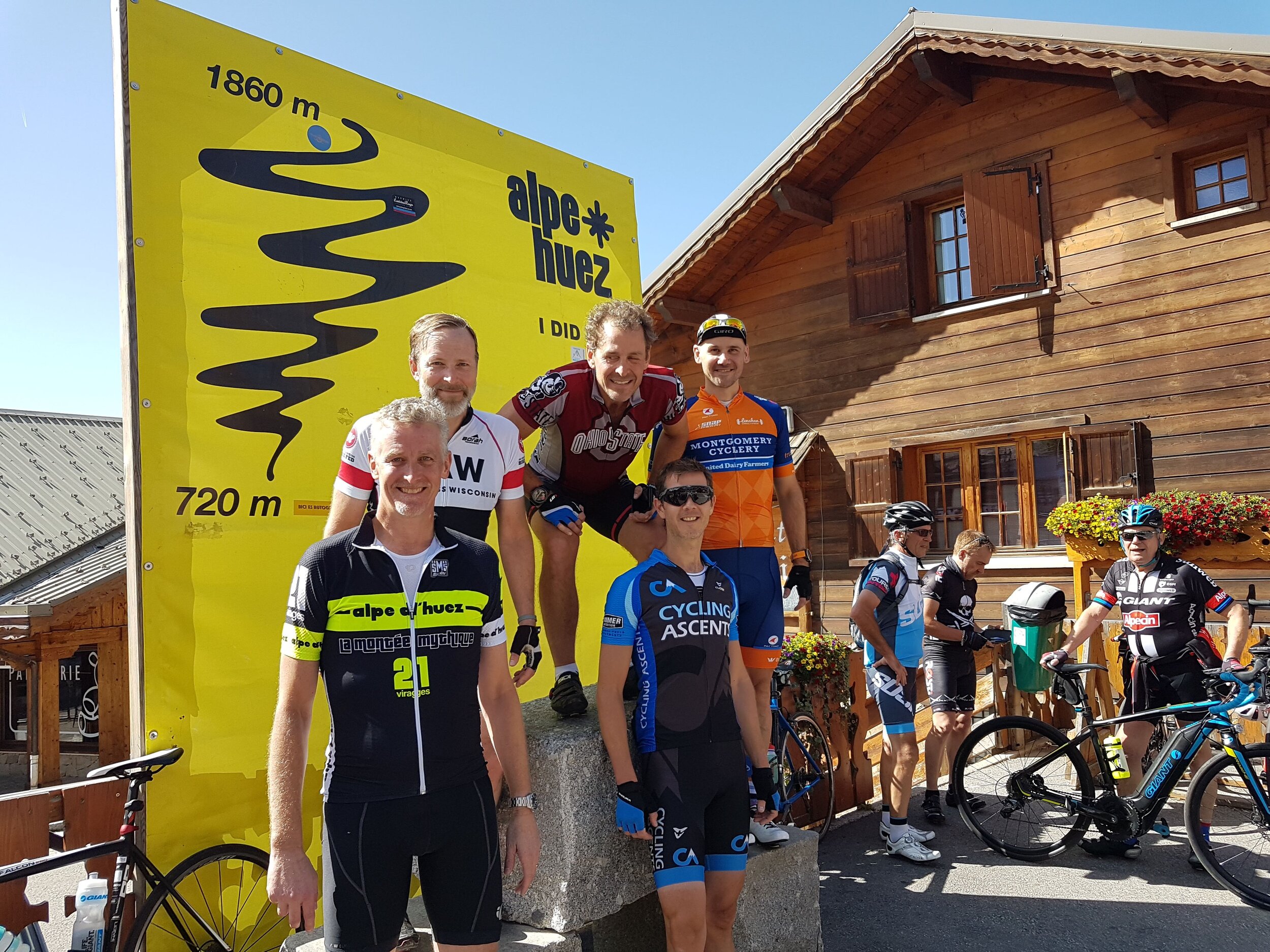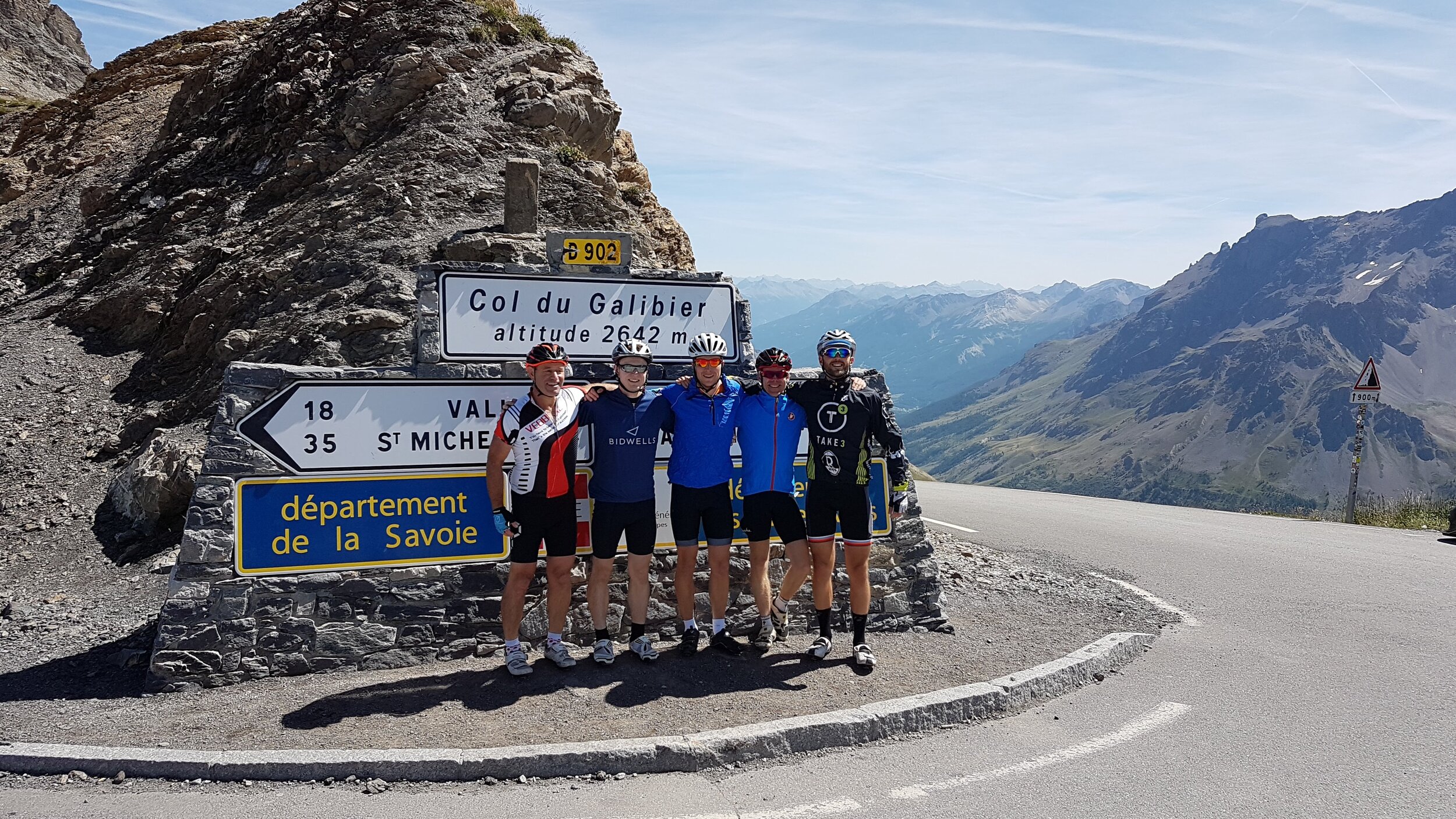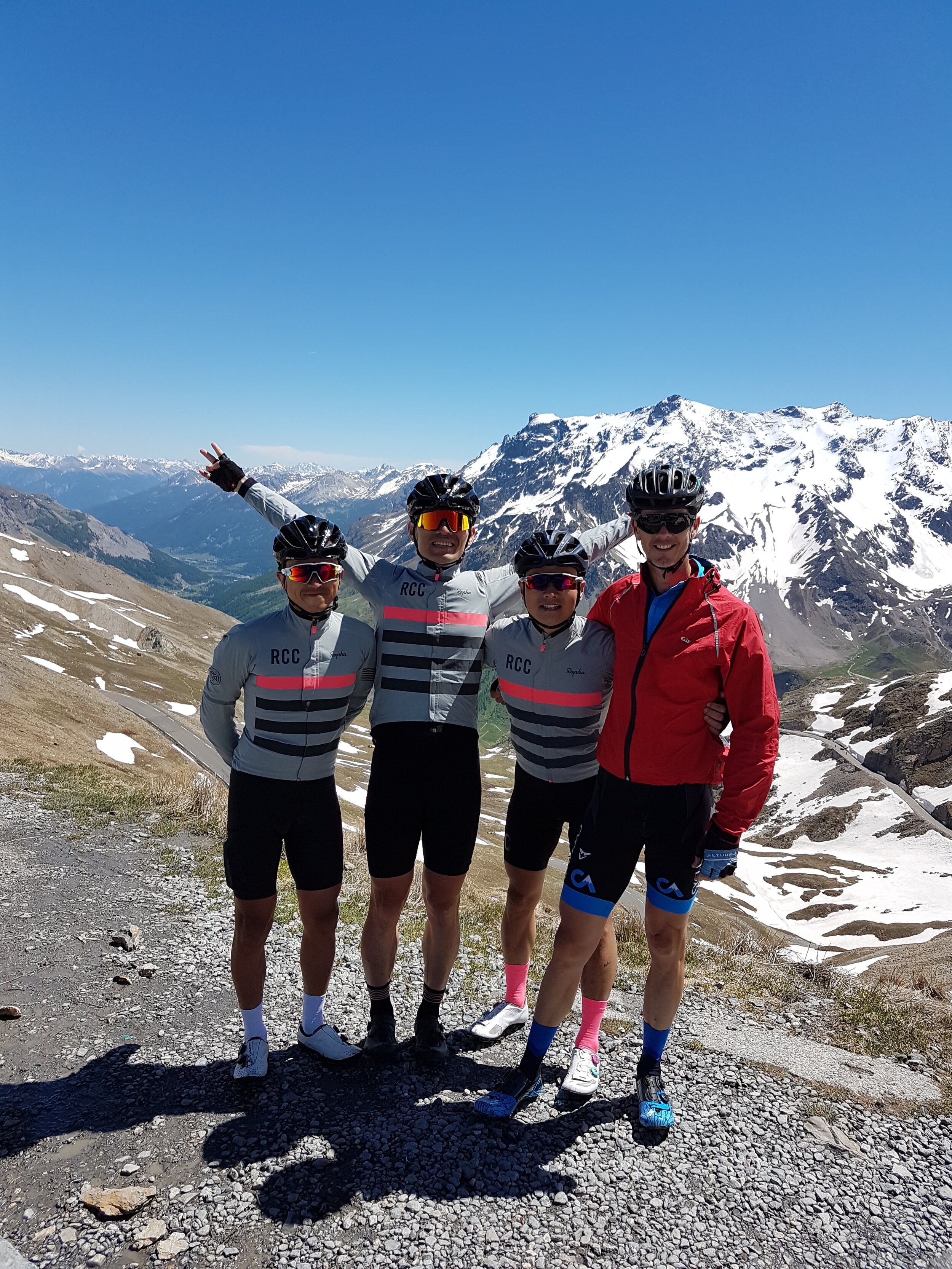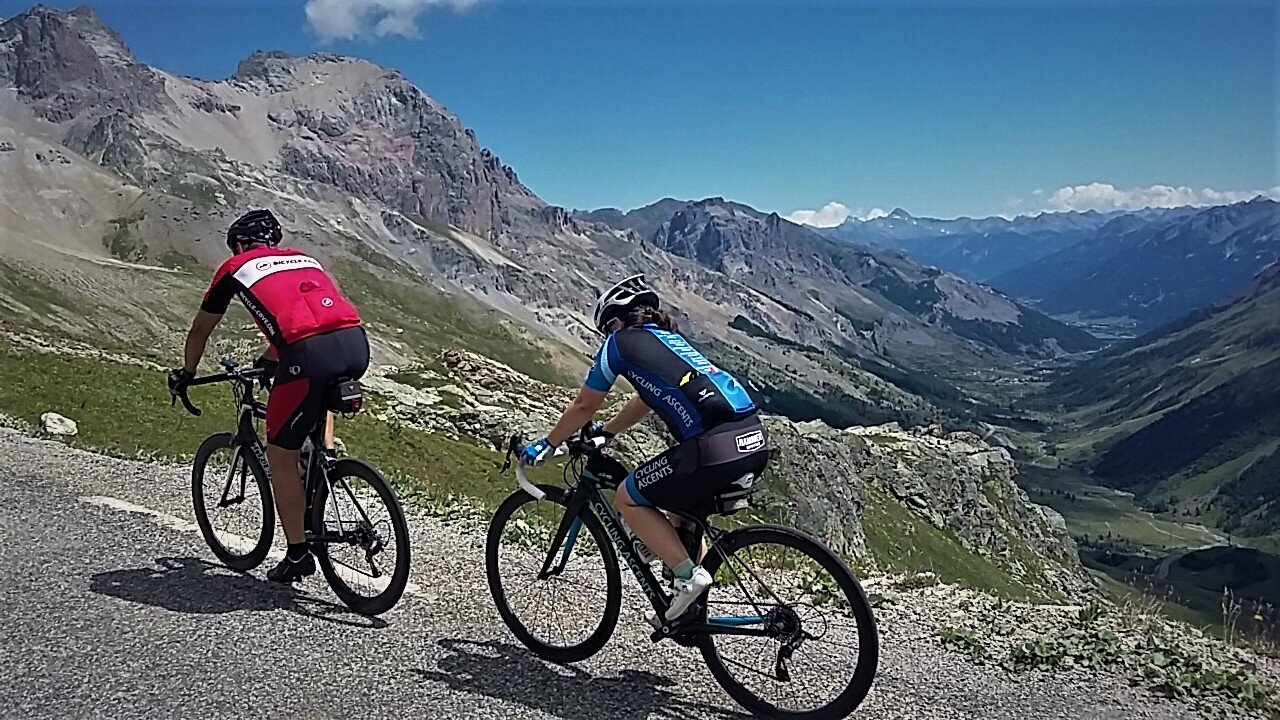How to prepare yourself and your equipment for an Alpine Training Camp
What you need to know about Alpine Training Camps
Perhaps you are considering mixing it up a little and swapping your traditional hot weather / pre-season training camp for something a little more adventurous….such as high Alpine passes, crystal clear lakes, and secluded forested trails. While the mountain scenery will undoubtedly be a big positive point to everyone, some of you might be a little apprehensive when imagining endless roads to climb and steep running trails (but at least you are guaranteed the swimming won’t be uphill!). This article will hopefully set your mind at rest however, by letting you know what to expect, and ensuring you have the right equipment and preparation completed before you set off overseas.
Equipment
The biggest equipment change you may need to make will be to your bike gearing. If you already live somewhere hilly, and have gearing to allow you to spin up the hills then that’s great, just pack your bike up and off you go. If you do think that you will need lower gears (because you generally ride on the flat, and your gearing is set up for this), then what you need will depend on both your climbing ability, and how long your trip is planned for. The longer the stay (and therefore the more riding you do), the more likely you are to appreciate those low gears. I’d also advise erring on the side of caution – in many years of riding with guests in the French Alps I’ve never heard someone say ‘I don’t think I should have bothered getting this 30 tooth cassette’, but the opposite is definitely true!
A quick refresher on terminology you might hear down at the bike shop (or see online):
‘Chainset’ – the toothed rings attached to your cranks.
‘Compact chainset’ – a smaller (ie less teeth) set of rings for your cranks, which will lower your gearing (make it easier on hills).
‘Mid Compact’ – in between (with regards to tooth number) a normal chainset and a compact chainset.
‘Cassette’ – The cogs on the back wheel….which between them and the chainset create your final gearing choice.
If those terms are unfamiliar to you, or leave you thinking ‘I just want someone to tell me what to buy!’ then either go to your local bike shop or email the company running the camp for advice.
Most of our guests end up with a compact chainset (50 tooth large ring and 34 tooth small), and a largest cassette sprocket around the 28 – 32 range. Just be aware that increasing the size of your cassette may need a new derailleur, too. If you are not sure if this is required, or if the gearing you have is suitable or not, then just ask! Any reputable tour / training camp company will know what climbs are planned and be able to suggest options to you after just a few questions about your ability and current equipment. If this means an upgrade that is just too expensive for you, or you don’t feel will be much use outside of the camp then you can always consider hiring a bike locally (which should always come with appropriate gearing).
Mountains can have very changeable weather, so make sure that you bring along clothing to suit a wider range of conditions than the weather forecast suggests (these too are notoriously changeable!). It’s better to bring along arm warmers, extra layers, and squeeze that heavier duty rain jacket into your back pocket and risk carrying it round for nothing, than be cold the whole way down a 45 minute descent….
Swimming gear (for the pool) will not be any different to what you are normally used to. The view might be though! If you are planning on open water swimming in lakes, be aware that some are very cold all year round due to the mountain streams which feed them (it could be glacier melt water!). It may not be possible to swim in some lakes for this reason, or because of safety if access is difficult. Many alpine lakes are used for power generation or as reservoirs. Always make sure that you get local advice first and that it’s safe, and authorised for you to swim in any outdoor location. Of course if you are booked on to a training camp then they will have checked all these factors for you, just bring along the kit they suggest!
Bike Rides
If you are unsure how you’ll cope with a 25km long climb, then you are certainly not alone. While you can’t escape the laws of physics, or power to weight ratios, there are both techniques to help during the climb and preparation you can do. You can expect typical gradients to be most often in the 7 – 9% range. While you will certainly experience slopes outside of this range, most alpine roads are engineered this way to avoid issues for vehicles during snowy conditions.
The first thing to consider (especially if you live in an area with either no climbs, or only short, sharp affairs) is that these climbs will be a marathon not a sprint. While ‘gritting your teeth’ and ‘just getting it over with’ might be valid techniques for your local 3 minute long hill, this will certainly not work on a 3 hour / 2000m ascent! While a power meter will instantly tell you if you are pushing too hard, heart rate will work too (albeit with a bit more of a time lag). If you have neither of those, the best way to know if you are overdoing it is if you don’t fancy talking. I know that a group I ride with has got the pace right for a long day in the mountains, when the chatting doesn’t completely stop shortly after the road goes up! Aim for an effort that feels like you are working into a headwind – more effort than spinning on the flat, but also something that you can sustain for at least a couple of hours at a pinch. As a general rule, go a little less hard than you think, especially at the start. It’s a lot more common to see riders working too hard on the first half of the climbs, and setting themselves up for future difficulties, than a strong but steady pace that you could increase slightly if you are a bit behind schedule.
Taking this all into account, the best preparation for the build up to your holiday are the typical long endurance rides – if you can get a 5 hour ride done without it feeling like it’s broken you, you should be fine. (Make sure now and again you push the pace a bit during these training rides to reflect the slightly higher intensity you will be using during the climbs.)
Again, if you have any doubts to your ability to get up these climbs the best way to decide is to talk it over with the organisers.
With regard to nutrition while climbing, you will invariably be working harder than if you were just out for a steady ride on the flat. So keeping the calories coming in via energy drinks and bars (or whatever your nutrition plan is) will be essential. Keep a steady, regular intake, rather than forgetting to have even a sip of drink for 45 minutes then making up time by guzzling a bottle and 2 gels. Also, as with the clothing, take more nutrition that you think you will need. Plans sometimes go awry, and there is nothing worse than having 4km of 11% gradient between you and home, while on the verge of bonking! (As you might be able to tell from the specifics of that example I can say this from experience!).
Once you’ve got to the top, you will probably have the longest downhill you’ve ever done to look forward to……
……unless downhills make you a little nervous and then in that case you have an excellent opportunity to improve!! Due to the length of the descents in the Alps, they are great for becoming more comfortable with the braking and cornering process as you can practice again and again, one after the other. Road surfaces are generally very good, and gradients quite consistent. That steady but progressive pushing of your comfort zone will have even the most hesitant descender going significantly quicker by the end of the week. Being asked to ‘improve my descending’ is the most common request I get from guests. There is a minimum starting point however, so if you are really apprehensive about going downhill then getting some practice in prior to your holiday will really help. You will also very likely want to bring your own bike with you (as opposed to hiring) as having to deal with unknown tires / brakes / bike geometry in addition to good downhill technique may be a step too far for some nervous descenders.
Running
Given that you are probably coming to the Alps to experience the great outdoors, you’ll most likely find that wherever you are based, there are more options for trail running than road running. You will also experience more of what you came to the Alps for on trail runs - scenery, seclusion, connecting with nature - so get those trail shoes on and get out there! While you will probably be able to find some remarkably difficult ‘vertical kilometre’ type trail runs, given the geography of glacial valleys, there will very likely be a big flat valley floor in the middle to run on if that suits you more.
Is this a Holiday for You?
At first view an ‘Alpine Training Camp’ may prompt you to think that it is strictly for mountain goats only, or perhaps those crazy people who do an Ironman with 5000m vertical gain. Like any sporting holiday there will be a minimum fitness level needed to be able to enjoy the week and take part in most of the activities, but it will typically be much more inclusive than you think. Long climbs are often about steady efforts, at a lower intensity than you normally climb at. Trail runs will be about ‘getting into the wild’ rather than scaling a mountain Kilian Jornet style. Ensure that you and your gear is well prepared, sign up, and you could find yourself experiencing that double whammy of exercise induced satisfaction from your accomplishment, in spectacular Alpine scenery.
We’re here to help
Tri Training Harder are one of the leading Triathlon coaching providers in the UK, using our wealth of experience to unite scientific and technological research with already well-established and successful best practices, to create a formula for triathlon and endurance coaching that works.
The result is an honest, dynamic, yet simple new way of constructing an athlete’s training to allow them to reach their potential.
If you’re planning your next season, just starting out in the sport or are looking for extra guidance at the very top end of the field, we are here to help, and our coaches would be delighted to hear from you. You can contact us via the website, and one of the team will be in touch.







